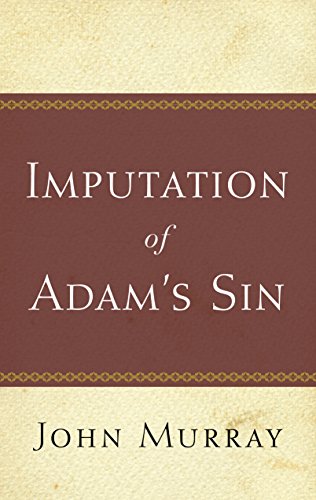Quotes about Sin-Perspectives
Sin arises when things that are a minor good are pursued as though they were the most important goals in life. If money or affection or power are sought in disproportionate, obsessive ways, then sin occurs. And that sin is magnified when, for these lesser goals, we fail to pursue the highest good and the finest goals. So when we ask ourselves why, in a given situation, we committed a sin, the answer is usually one of two things. Either we wanted to obtain something we didn’t have, or we feared losing something we had.
As a result of grace, we have been saved from sin’s penalty. One day we will be saved from sin’s presence. In the meantime we are being saved from sin’s power.
Made For His Pleasure, Moody Press, 1996, p. 39. Get this book!
I cannot pray, except I sin. I cannot preach, but I sin. I cannot administer, nor receive the holy sacrament, but I sin. My very repentance needs to be repented of and the tears I shed need washing in the blood of Christ.
The great, and glorious end for which God decreed the after-being of sin, is His own glory: and the ends subordinate thereunto are not a few. Particularly, God decreed the futurition of sin:
1. That He might have occasion of glorifying His infinite wisdom, love, and grace in the redemption and salvation of a company of lost sinners through the death and sufferings of His own dear Son.
2. That His patience and long suffering in bearing with and forbearing sinners, might be magnified, admired, and adored.
3. That He might be honoured and glorified by the faith and repentance of His people, and their walking humbly with Him.
4. That His justice might be illustriously displayed and glorified in the eternal damnation of reprobate sinners for their own sins and abominations, sin being the cause of their damnation, though not of their reprobation.
It is great folly to cast your sins upon Satan who tempted you, or upon your neighbor who provoked you; but it is a far greater sin, nay horrid blasphemy, to cast it upon God himself. A greater affront than this cannot be offered to the infinite holiness of God.
That all sinful actions fall under the divine decree. Though sin itself flows from transgressing the law, yet the futurition of it is from the decree of God. No such thing could ever have been in the world, if it had not been determined by the eternal counsel of Heaven for a holy and just end. This is plainly asserted by the apostle Peter, with respect to the greatest villainy that was ever committed on the earth, namely, the death and sufferings of the Lord Jesus Christ, at the hands of sinful men (Ac. 2:23; 4:27-28)… There was never such an atrocious crime or higher act of wickedness committed, than the murdering of the Lord of glory. And yet it appears from these texts of Scripture, that, in this bloody and horrid scene, wicked men did no more than God’s hand and counsel determined before to be done.
For as the sun darts its beams upon a dunghill, and yet is no way defiled by it; so God decrees the permission of sin…yet is not the author of sin.
Before we had no choice; now we have one. When we sin as Christians, we do not sin as slaves, but as individuals with the freedom of choice. We sin because we choose to sin.
Copied from The Pursuit of Holiness by Jerry Bridges, © 1996, p. 57. Used by permission of NavPress – www.navpress.com. All rights reserved. Get this book!
It might be well if we stopped using the terms “victory” and “defeat” to describe our progress in holiness. Rather we should use the terms “obedience” and “disobedience.” When I say I am defeated by some sin, I am unconsciously slipping out from under my responsibility. I am saying something outside of me has defeated me. But when I say I am disobedient, that places the responsibility for my sin squarely on me. We may, in fact, be defeated, but the reason we are defeated is because we have chosen to disobey.
Copied from The Pursuit of Holiness by Jerry Bridges, © 1996, p. 81. Used by permission of NavPress – www.navpress.com. All rights reserved. Get this book!
It’s a funny thing about us human beings: not many of us doubt God’s existence and then start sinning. Most of us sin and then start doubting His existence.
Who knows the extent to which we would give in to sin, were we to be given a guarantee of immunity from discovery and exposure?
Thou hast an art above God Himself, if thou canst fetch any true pleasure out of unholiness.
A Puritan Golden Treasury, compiled by I.D.E. Thomas, by permission of Banner of Truth, Carlisle, PA. 2000, p. 140.
But too often it has been overlooked that the opposite of sin is not virtue, not by any manner of means. This is in part a pagan view which is content with a merely human measure and properly does not know what sin is, that all sin is before God. No, the opposite of sin is faith, as is affirmed in Rom. 14:23, “Whatsoever is not of faith is sin.”
We do not sin simply because of Satan or because of social deprivation, stressful situations, bad influences, or any other external cause. Those things may tempt us to sin and make sinning easier, but when we commit sin – or even intend to commit sin – it is because we decide to sin. Sin is an act of the will.
We would never know God’s righteousness unless there’s a backdrop of sin; we would never know His saving love unless there’s the backdrop of unworthiness and unloveliness. We would never understand His wrath if there were not an opportunity for judgment. We would never know His mercy if there were not an opportunity for forgiveness. We would never understand grace if He could not bless those who are unworthy.
Table Talk on Trouble and Triumph, Part 2. The sermon originally appeared at: (https://www.gty.org/library/sermons-library/42-271/table-talk-on-trouble-and-triumph-part-2) at www.gty.org. © 1969-2008. Grace to You. All rights reserved. Used by Permission.
The nearer you take anything to the light, the darker its spots will appear; and the nearer you live to God, the more you will see your own utter vileness.
A sin is a clear violation of the Bible, chapter and verse. An act that is truly sinful – not just a disappointment to me but an offense to God – warrants discipline in some cases. But “love covers a multitude of sins” (1 Peter 4:8). Honesty compels us to hold back before we go so far as to accuse anyone of a sin. Is it a sin? Really? In God’s sight?
There is a great difference between realizing, “On that Cross He was crucified for me,” and “On that Cross I am crucified with Him.” The one aspect brings us deliverance from sin’s condemnation, the other from sin’s power (John Mantle).
Sin needs darkness to grow – it needs isolation disguised as “privacy,” and prideful self-sufficiency disguised as “strength.” Once these conditions prevail, sin is watered with the acid of shame, which then makes darkness appear more attractive to the sinner than light (Mark Dever and Paul Alexander).
Doing Church Discipline, taken from The Deliberate Church, © 2005, Crossway Books, a division of Good News Publishers, Wheaton Illinois 60187, p. 68, www.crosswaybooks.org.
Seeking mortification of sin just to quiet the soul and find relief from the torment of the conscience, all the while neglecting to deal with the root cause of sin, is a result of self-love. Men are diverted from coming to God this way. This is of the most common deception in which men ruin their souls. They seek to apply themselves to victory over the troubling sin but do not allow their conviction to lead them to the gospel. They perish in their “reformation”.
Think of the guilt of sin, that you may be humbled. Think of the power of sin, that you may seek strength against it. Think not of the matter of sin…lest you be more and more entangled.
A Puritan Golden Treasury, compiled by I.D.E. Thomas, by permission of Banner of Truth, Carlisle, PA. 2000, p. 293.
The root of our sinfulness is the desire for our own happiness apart from God and apart from the happiness of others in God.
Loving God as Yourself – Part 2, May 7, 1995, www.DesiringGod.org. Used by Permission.
Every part of the world bears testimony to the fact that sin is the universal disease of all mankind… If the inhabitants have known nothing else, they have always known how to sin! Everywhere the human heart is naturally “deceitful above all things, and desperately wicked” (Jer. 17:9).
Until we taste the bitterness of our own misery we will never relish the sweetness of God’s mercy. Until we see how foul our sins have made us we will never pay our tribute of praise to Christ for washing us… If you would know the heart of your sin then you must know the sins of your heart!
Confronting another when they are in a state of sin is an act of love. If our children were abusing drugs we would make a judgment call. Why is it any different if a brother or sister in Christ is acting in a destructive manner? Don’t we understand the destructive nature of sin? It nailed our Savior to the cross! Respected pastor and theologian, John Stott, once said, “To [learn of a foreign object in a brother’s eye and] leave it there, and make no attempt to remove it, would hardly be consistent with brotherly love” (Sermon on the Mount, p. 179). If we really want to be more like Christ (Rom. 8:29), we will be grateful to have our sins revealed. If we are humble, we will be grateful to have our sins revealed. It is only the scoffer, according to Proverbs, who hates correction (Pro. 9:8). And if this is what is best for us, we should naturally want it for others. Isn’t that the Golden Rule (Mt. 7:12)?
Every sin we commit is saying, among other things, that we need to take matters into our own hands to achieve the greatest joy (something we all desire) because doing it God’s way, we believe, will not result in our greatest blessings!
Whatever sin you might be struggling with, there is Gospel power by God’s grace for you to be an overcomer. This is the promise from God and this is the work He performs in the lives of His children. So when professing Christians think they can’t change even with God’s help or worse become more of a heathen after they come to Christ, something, somewhere along the lines was short-circuited.
Sermon, A Successful Gospel-Centered Ministry – Part 1, 2 Corinthians 4:1-6, April 13, 2014.
So, we all sin. How do we know when we sin? Usually in one of four ways. Right after we violate a known command. A biblical rebuke from a fellow believer. After we read our Bible and discover something we have been doing is wrong. Or during prayer as we desire the Lord to search our hearts and reveal any sinful way within us. This is the ongoing biblical process of “self-examination.”
There are, of course, those whom God has determined that He would never give new life to. Those who have committed the unpardonable sin, blasphemy against the Holy Spirit (Matthew 12:31), will not be regenerated. Those who have trampled under foot the blood of Christ (Hebrews 10:29), will not be regenerated. Those who have committed the sin unto death (I John 5:15-16) will not be regenerated. I do not pretend to know whether this is one, two or three distinct groups. I do know this – that those who fall under these texts do not come equipped with a signed affidavit letting us know for certain that they are guilty of this sin. As such, I don’t believe we can single out real flesh and blood people and determine – “That one is beyond redemption.”
Do you believe there are people who are incapable of repenting? December 12, 2013, Used by Permission.
Great thoughts of your sin alone will drive you to despair; but great thoughts of Christ will pilot you into the haven of peace.
The strength of temptation also comes from a tendency to push virtues to such an extreme that they become vices. For example, it is all too easy for the joy of eating to become gluttony, or for the blessing of rest to become sloth, or for the peace of quietness to become non-communication, or for industriousness to become greed, or for liberty to be turned into an excuse for licentiousness. We all know what it’s like for pleasure to become sensuality, or for self-care to become selfishness, or for self-respect to become conceit, or for wise caution to become cynicism and unbelief, or for righteous anger to become unrighteous rage, or for the joy of sex to become immorality, or for conscientiousness to become perfectionism. The list could go on endlessly…
Tactics of Temptation, November 8, 2006, www.enjoyinggodministries.com. Used by Permission.
I do not say that sin works for good to an impenitent person. No, it works for his damnation, but it works for good to them that love God… I know you will not draw a wrong conclusion from this, either to make light of sin, or to make bold with sin… If any of God’s people should be tampering with sin, because God can turn it to good; though the Lord does not damn them, He may send them to hell in this life. He may put them into such bitter agonies and soul-convulsions, as may fill them full of horror, and make them draw nigh to despair. Let this be a flaming sword to keep them from coming near the forbidden tree.
A Puritan Golden Treasury, compiled by I.D.E. Thomas, by permission of Banner of Truth, Carlisle, PA. 2000, p. 282.
If God rules only in those places or events where no sin is involved, God does not rule on this earth. If sin can thwart God, His sovereignty is a name and not a fact.
[Knowing the character of ] Satan, we may easily judge who his children are. They are those who love to tell a lie, who slander and speak evil of their neighbor, and whose hearts are full of pride, deception, hatred, envy, revenge, and cruelty. Surely they have Satan for their father: for they know Satan’s character and they do the works of Satan. But if they could either see themselves, or Satan as he really is, they would be terrified at their resemblance to him, and totally hate themselves with a deep remorse.
























